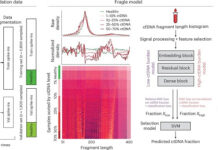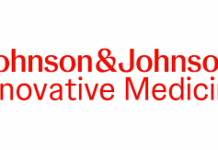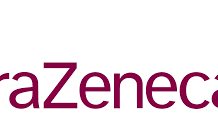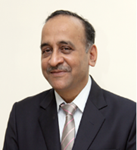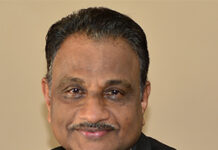“It is a most gratifying sign of the rapid progress of our time that our best textbooks become antiquated so quickly”- Theodore Billroth
There has been a lot of debate and discussion on medicine as a profession, as a career but I still look upon it as a calling, a choice one makes in life. Yet, many changes keep happening in this field, and what might have been the “Gold Standard” a decade ago, maybe trashed today as useless by advocates of “evidence-based” medicine.
As a person who has been in this field for over 30 years, particularly in medical teaching, it is my privilege to share some of my experiences and thoughts from this journey.
“Watchful Expectancy and Silent Observation are the Hallmarks of a Good Obstetrician”
As a junior resident in Seth GSMC & KEM Hospital, I remember our senior Honorary Dr Shirish Sheth, who went on to become President of FIGO (our International Organization) telling us this. Memories of the time spent as housemen and registrars (now called JR 1,2,3) will never fade, but certain landmark moments remain with us for a lifetime! We were also taught that by observing how someone conducts a Breech delivery, you can truly gauge the clinical skill of an obstetrician. Another of our Honorary teachers Dr Usha Krishna was very enthusiastic about research and innovations in Family planning and was doing projects with ICMR. Of course, our full-time teachers were no less- Dr. Indira Hinduja, credited with the firstIVF baby was a Unit head in KEMH too, and the Head of the Department (HOD) Dr. Mina Bhattacharya was a very enthusiastic surgeon who developed a microsurgery lab for the institute.
“The Journey of a thousand miles begins with a single step” – Lao Tzu
Many innovations would have never seen the light of day if the person who thought of it didn’t dare to move forward. This is true in medical science too. Although we often say it is an “art” rather than a “science”, it is always a background of hard work, effort, and perseverance that will bring any innovation into implementation. We as teachers need to foster the spirit of Research. Stringent regulations and ethical concerns may seem daunting to try new paths, but we have to be prepared to go the extra mile to find a new path. I often tell my residents that they need to start thinking and stop working at a “spinal” level, and get out of the “work-eat-sleep-repeat” cycle to find something new and exciting. Furthermore, we have to remember that if it’s not published, it’s not done! Efforts must be made to put pen to paper (or fingers to keyboard!) and document what you have done. I will be forever grateful to late Dr. M.Y.Raval, my HOD when I was a lecturer in Nair who allowed me to co-author my first 2 chapters in a textbook with him- and I have never looked back since then! At that time when I was in Nair, another wonderful graceful Honorary Dr. C M Alwani, who passed away last year, was another inspiring person who had started OPD Hysteroscopyand colposcopy, and had mentored many including the Late Dr. Rakesh Sinha.
“The Child Gives Birth to the Mother”
We are responsible for both patients, as obstetricians have to focus on the mother-infant dyad. It is a responsibility that can be scary sometimes, especially with the increasing medico-legal environment and demands for perfection/ designer babies and reproductive choices that have changed over the past few decades. Women have become more career-oriented, and often the age of marriage is late, leading to the ticking away of the Biological Clock- seen in a lot of our residents! I have been giving fertility planning/ preservation advice to many of my female assistants along the way and often found that career choice clashed with family welfare, and PCOS/ endometriosis/ low AMH were issues they had to deal with themselves. “Physician Heal Thyself” it has been said, and I do believe that we have to encourage our young doctors to look after themselves. For Doctors Day and International Women’s Day, our team organizes Health check-ups for women staff and doctors, ranging from BP, and BMI to BMD and cancer screening. My registrar was found to be having severe anemia due to menorrhagia in one such camp- which explained why she always seemed to be so slow in her work!
‘Health is the real wealth, not gold and silver.’- Mahatma Gandhi
The World Health Organisation commemorates the World Health Day celebration every year on April 7th, to create awareness among people about health and wellbeing. We are all aware of the definition of health being broad-based and not restricted to the mere absence of disease. A healthy body is the first essential component to the state of complete well-being. The best way to maintain physical well-being is through a balanced diet. Intake of essential nutrients in appropriate quantities has been a major focus in current times, especially in COVID. The other essential components are regular exercise, and trying to take adequate sleep (7-8 hours).
Another neglected aspect is mental health or mental well-being. Mental health refers to the state of emotional and psychological well-being of the individual. A person’s mental well-being impacts their emotions and behavior in handling situations. The best recommended way to maintain mental health is by staying positive and meditating. However, there is this stigma about mental health and many people do not consider mental disorders as an issue of significance.
Psychological well-being is as equally important as physical well-being. When people criticize mental illness, it instantly creates an adverse impact. This is relevant at extremes of age. Parents often concentrate only on their children’s physical needs, but they often fail to notice the crumbling mental health of their children. Even among elders, one fails to see their psychological well-being- this also applies to our senior colleagues who may have retired, we need to acknowledge them.
In medicine, we have young people coming to us after much struggle, often from other places across the country with different backgrounds thrown together in the melting pot of a medical college they may have only read about earlier.
In residency we as teachers are now finding many more residents and students struggling due to adjustment difficulties and mental stress, interpersonal conflicts rather than the actual physical challenges of being a junior doctor who has to work hard to create his/ her career. It is compounded by a lack of awareness among people and focusing on superficial appearances. Therefore, one must be able to identify the signs of mental illness. A laughing person is not always a happy person. Never brush off mental illness as a taboo, instead pay attention and save people’s lives- tragic incidents of suicide in medical professionals have increased as one of the collateral damages of the pandemic.
“It is not only what we do, but also what we do not do, for which we are accountable” – Moliere
As medical practice has changed over the years, expectations of patients have changed. Similarly, technological advances and changes in instrumentation and techniques have made some of our standard practices obsolete. Hence if we do not change with the changing times, we will be held responsible for failing our next generation. We need to be learners ourselves, and only then will we be able to fulfill our role as teachers who will be shaping the careers of the young trainees.
“Each day is a chance to ask- How wonderful could it be?”- Dale Dauten in Better Than Perfect
I would like to end with this lovely quote which highlights the importance of focusing on the present and making the very best out of any given situation. That will be our way to leave our footprints in the sands of time.
Thanks for this opportunity to share my thoughts with you all!






